The Island Castle - Trakai - Lithuania
Reached via two walkways across Lake Galve the island castle of Trakai is the greatest symbol of Lithuanian nationalism.
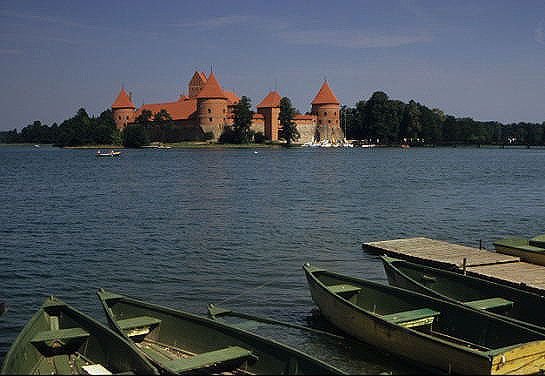
Situated in an area of lakes and forests roughly 15 miles west of Vilnius, the red-brick turrets, watchtowers, and tall keep were restored in 1962 by the Lithuanian government much to the chagrin of then Soviet leader Nikita Khruschev, who believed that such displays of Lithuanian defiance could endanger the future of the Soviet Union.
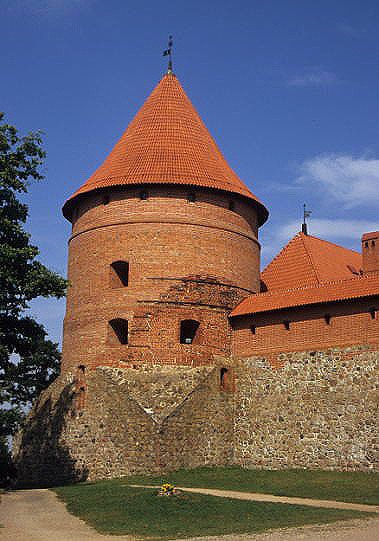
The castle had its greatest period in the reign of Vytautas the Great at the beginning of the 15th Century before falling into terminal decline after being destroyed by the Russians in the period 1654 – 1657. The town of Trakai is situated at the end of the peninsular facing the castle. Visitors should take a look at the town and be aware of a people called the Kairim, around 100 of whom call Trakai home.
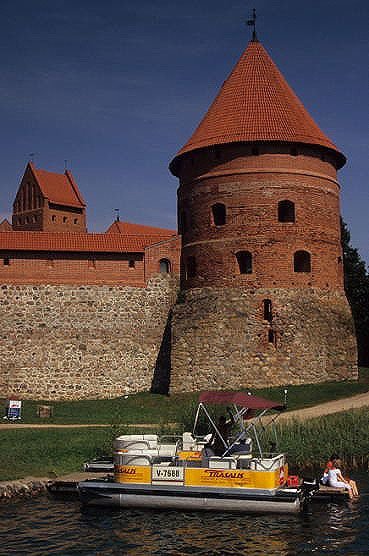
At first view from the lakeside the castle appeared to be more than the official 500 metres away across the lake. However, I was soon distracted by sail boats, people thrashing about in small green rowing boats and picnickers by the path. There were vendors selling amber jewellery, ice creams, and postcards. The stall and shop holders all spoke good English and are very honest – the man I bought two international stamps from seemed very offended when I suggested that he didn’t have to turn all his pockets and table drawers inside out to give me the exact change – he fixed me with a stare and said “A deal is a deal,” and then rifled through his briefcase for the final three coins. I wondered about leaving him a tip of the coins he had spent so long finding, but thought better of it.
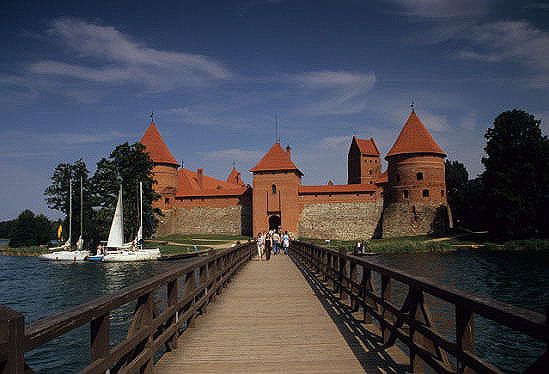
The walkways across the lake are well maintained and reassuringly sturdy. On the small island between the walkways was a man with an accordion playing small snatches from an international repertoire. I think he looked at the tourists heading towards him, assessed where they were from, and then played a tune associated with that country. I recognized the Marseilliaise and the overture from Carmen, but didn’t recognize the dour and sombre piece he played for the Russian tourists who had just visited the castle.
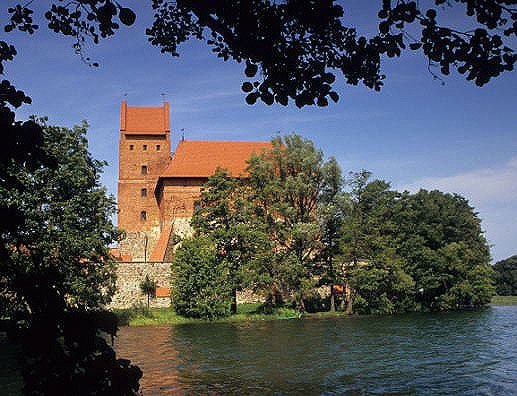
Once inside, there are many exhibitions to see, most of them in the keep. In the large courtyard people were taking photos of each other in the stocks and inside a rusty iron cage. The keep exhibits evoked what life would have been like in the medieval castle and also showed traditional Lithuanian garb. The most interesting piece was the interactive exhibit which showed how the castle evolved over the centuries and how little of the castle there was left before restoration began - probably only 10% of the original castle remained.
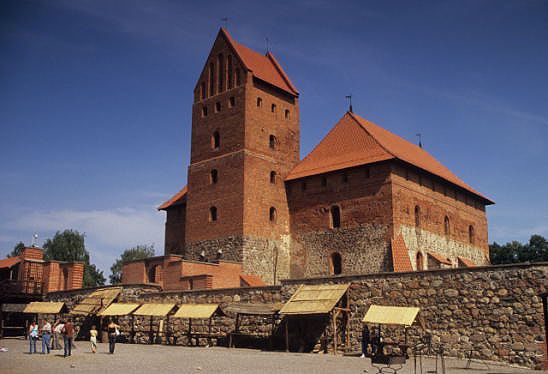
The castle is the most visited site in Lithuania and on summer weekends can attract as many as 10,000 people. These visitors not only benefit Trakai they also subsidise other places that aren’t as well visited because Lithuania’s museums are run as a whole entity. This helps places such as the Ciurlionis Museum in Druskininkai, which has 50 customers on its best day and sometimes none for days in the winter.
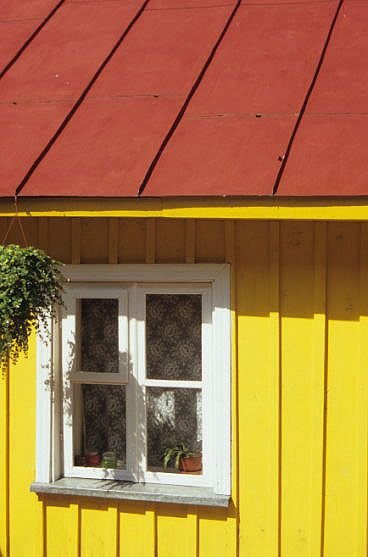
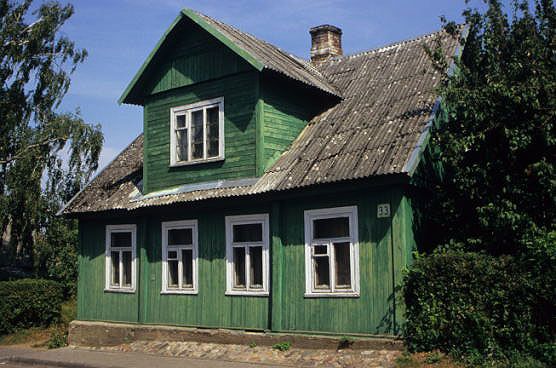
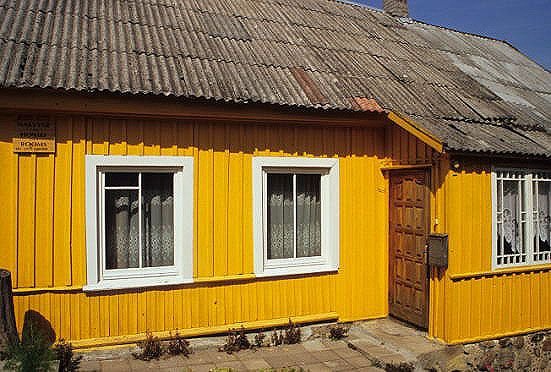
The town of Trakai has a lot of colourful wooden houses and most belong to the Kairim who practice a branch of Judaism. Their plain temple, called a Kenesa, is on the main street and is open for visitors. The Kairim are thought to be descended from another people called The Khazars, who lived between the Black and Caspian Seas. The Khazars were a pagan people who decided at some point in the 7th and 8th centuries that they should embrace a religion, but weren’t sure which one. In a wonderful example of magnanimity the Khazar leaders invited envoys from the three main monotheistic religions to meet them and show them why the Khazars should choose their religion.
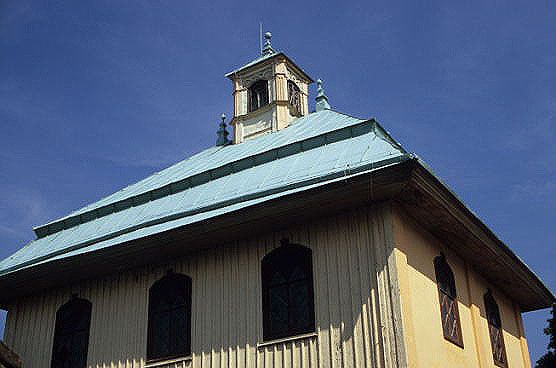
The Jewish delegates were obviously the most persuasive and the rest is history. What is known is that Vytautas the Great met the Kairim in Crimea when campaigning there in 1397 and invited them back to Trakai to form an elite guard. Migration continued through the centuries until by the beginning of the 20th century there were 800 Kairim in Lithuania. Sadly, since then the numbers have diminished as the Kairim are assimilated into Lithuanian life and the usage of their language decreases.
the place look soo beautiful..especially the yellow house..
It's a lovely place and one of three or four outstanding sights in Lithuania.